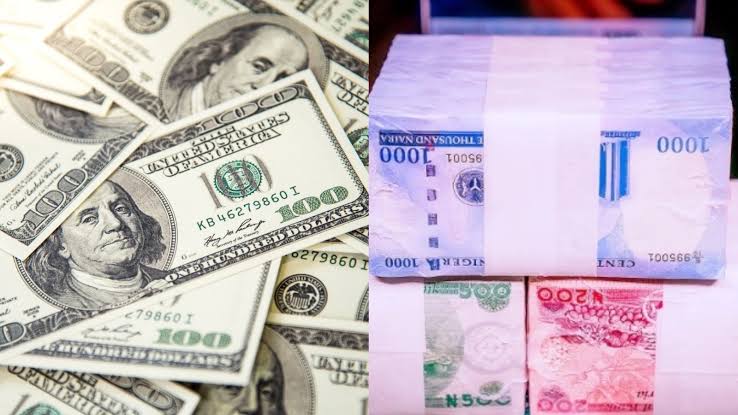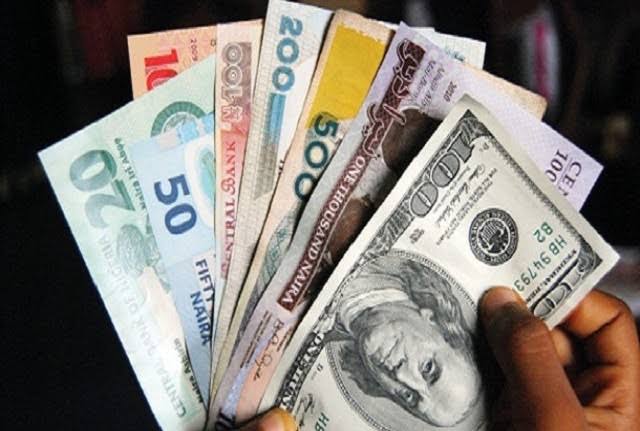Dollar to Naira black market exchange rate in Nigeria for today August 11, 2023, can be accessed on Ejes Gist News .
What is the Dollar to Naira Exchange rate at the black market also known as the parallel market (Aboki fx)?
How much is a dollar to naira today in the black market?
Dollar to naira exchange rate today black market (Aboki dollar rate):
Dollar To Naira Yesterday Black Market
The exchange rate for a dollar to naira at Lagos Parallel Market (Black Market) players buy a dollar for N845 and sell at ₦850 on Thursday, August 10, 2023, according to sources at Bureau De Change (BDC).
Please note that the Central Bank of Nigeria (CBN) does not recognize the parallel market (black market), as it has directed individuals who want to engage in Forex to approach their respective banks.
Read Also WAEC Result Checker Portal: How to check WAEC results 2023 using SMS, Phone, Scratch card
| Dollar to Naira (USD to NGN) | Black Market Exchange Rate Today |
| Buying Rate | ₦945 |
| Selling Rate | ₦950 |
Read Also CBN Official Naira to Dollar exchange rate today August 11, 2023
Please note that the rates you buy or sell forex may be different from what is captured in this article because prices vary.
Central Bank of Nigeria (CBN) Naira Exchange Rates for banks
Euro To Naira Black market exchange rate ngnrates.com
The euro to naira exchange rate on August 4, 2023, is as follows:
- Buying rate: ₦1065.83/€
- Selling rate: 1083.83/€
This means that you can buy 1 euro for 1065.83 naira, and you can sell 1 euro for 1083.83 naira.
Pound To Naira Black market exchange rate ngnrates.
Pound to naira exchange rate at the Investors and Exporters (I&E) window on August 4, 2023:
- Buying rate: 1,045.41 naira
- Selling rate: 1,045.80 naira
This means that you can buy 1 pound for 1,045.41 naira, and you can sell 1 pound for 1,045.80 naira.
Factors Influencing Foreign Black Market dollar to naira Exchange Rate
Here are some of the causes of the dwindling dollar-to-naira exchange rate.
Inflation Rates: It is well known that inflation directly impacts black market exchange rates. If the Nigerian economy can be stabilized and inflation is controlled, the naira will benefit; however, if the naira continues to fall, it may indicate that food and other necessities are becoming more expensive daily.
Interest Rates: Another tool to keep an eye on is interest rates. If the interest rate at which banks lend money rises, it would harm the economy, causing it to contract and, as a result, the value of the naira to fall.

“Naira Hits Unprecedented Low at N1000/$1, Foreign Exchange Demand Surges”
In an unexpected turn of events, the Nigerian naira experienced a historic drop on Tuesday, August 8, 2023, plummeting to an all-time low of N1000/$1 on the parallel market. This drastic depreciation was attributed to an overwhelming surge in the demand for foreign currency that far exceeded its available supply.
Forex traders and experts weighed in on the situation, shedding light on the severity of the issue. Exchange rates were reported to have risen as high as N1000/$1 for ‘inflows’, referring to forex sold through interbank transfers, which generally carry a higher cost than cash transactions. Cash transactions were also impacted, with exchange rates reaching around N945/$1.
The situation was further complicated by the state of the peer-to-peer market, a domain where cryptocurrency traders engage in forex exchanges. In this market, the exchange rate soared beyond the alarming N1000/$1 mark, adding to the growing concerns about the stability of the naira.
The unprecedented drop in the naira’s value has sparked conversations and discussions among economists, policymakers, and financial analysts. The surge in demand for foreign currency, coupled with limited supply, highlights the challenges faced by Nigeria’s economy. Stakeholders are closely monitoring the situation and considering potential strategies to address the currency’s volatility and the wider economic impact.








